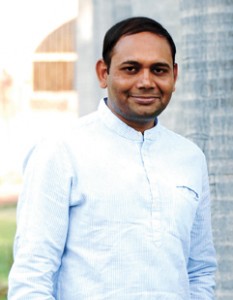Fancy making a mark in national and international politics? Sindhu Mansukhani tells you all there is to being a diplomat
“Diplomacy is to do and say the nastiest things in the nicest way” – Isaac Goldberg; author, journalist, critic
Fences divide our world into entities called countries, which have their own pattern of governance and administration. Yet, since the dawn of civilisation when countries were kingdoms, trade thrived between them. International relations, good and bad, gave birth to world politics, conflicts, treaties, wars, human rights, etc. Sustaining these relations, conducting negotiations and maintaining world peace, while ensuring everything goes in your country’s favour, is called diplomacy.
 THE EXPERTISE OF A DIPLOMAT
THE EXPERTISE OF A DIPLOMAT
Diplomats have been an integral part of international policies even before foreign ministers and their departments were established. It’s as much an art as is a profession, requiring great tact and equanimity, to deal with sensitive international matters under great strain. If you wish to develop that tact and composure, a smooth tongue, zeal to get what you want and the cunning to make someone give it to you; if you’re interested in international culture and languages, politics, economics, humanities, environment and world peace, becoming a career diplomat is the choice for you.
THE DUTIES
In light of globalisation, a diplomat’s duties today are more concerned with economics, trade, culture and cross-border disputes. Expectations from an Ambassador/High Commissioner are:
* Having expert knowledge on the host country’s language, culture and political affairs
* Representing India at multilateral organisations like the United Nations
* Projecting a positive image of India and promoting friendly relations with authorities of the host country and its citizens, including NRIs and PIOs
* Reporting everything about the host country that could affect the home country
* Conducting negotiations on agreements about various issues
* Catering consular facilities to foreigners and Indian nationals abroad
At the Ministry of External Affairs, diplomats are responsible for all external relations, be it economic, political, regional, legal, administrative, consular, etc.
Diplomats deal with extremely sensitive matters concerning the world, night and day. Their expertise is an invaluable asset to the country. It goes without saying that this job involves a lot of prestige and an even larger amount of responsibility, so before you zero in on this career path, consider not only your interests, but also your strength and confidence to manage such a high-profile job.
CAREER FACTS: DIPLOMACY
JOB PROFILE: A diplomat is an officer in charge of liaison between his home country and other countries of the world. Appointed by the state, he sees to it that matters concerning international policy go in his home country’s favour.
INCOME: The basic salary for a diplomat at the lowest rank is between Rs 8,000 and Rs 13,000 per month. However, allowances and benefits take the figure beyond Rs 50,000 which increases with promotions.
SKILL SET: Though people learn a majority of diplomatic skills through years of training, certain abilities like a smooth tongue, patience and equanimity go a long way in producing good diplomats.
THE LADDER OF DIPLOMACY
FOR OFFICERS POSTED IN INDIA
Ambassador/High Commissioner/ Permanent Representative – Minister – Counsellor – First Secretary – Second Secretary – Third Secretary
FOR OFFICERS POSTED AT INDIAN CONSULATES ABROAD
Consul-General – Consul – Vice Consul
FOR OFFICERS IN THE MINISTRY OF EXTERNAL AFFAIRS
Secretary – Additional Secretary – Director – Deputy Secretary – Under Secretary
THE ROUTE
1. Be a graduate between age 21 and 30 (bachelor’s degree in subjects like political science, economics and history is recommended)
2. Complete UPSC exams: preliminary exam (held in May), main exam (held in October or November) and then an interview
3. Expect fierce competition as average intake of Indian Foreign Service (IFS) is only eight to 15 new recruits annually
4. As an accepted candidate undergo meticulous three-month training at the Lal Bahadur Shastri National Academy of Administration for groundwork in diplomatic knowledge and skills
5. Move on to Foreign Service Institute (FSI), New Delhi for year-long training on various administrative departments, political principles, history, culture, media and international relations of the country
6. As a brand new officer take a desk job at the Ministry of External Affairs for six months
7. Now a Third Secretary, be assigned a Compulsory Foreign Language (CFL), go for an Indian Mission to a country where the CFL is the native language, and enroll for a language course
8. Once CFL exam is passed, IFS confirms you to service
The most challenging aspect of this profession, according to me, is the ability to be at ease with milieus, which are poles apart, from Tirana to Timbuktu, Port Moresby to Panama City. Nobody is born a diplomat. The meticulous and never-ending training makes him one. Which is why becoming an Ambassador of India takes almost 18-20 years. I would say that diplomacy is 90% training and 10% inheritance.
– Abhay Kumar, First Secretary, Indian embassy, Kathmandu
Volume 3 Issue 2





























